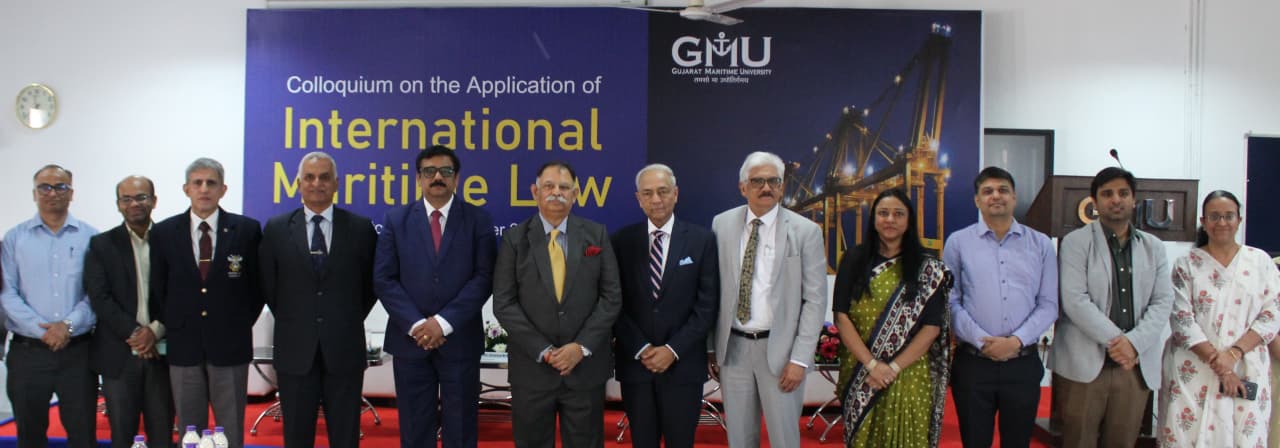
Gujarat Maritime University inaugurates week-long colloquium on International Maritime Law
GANDHINAGAR : Gujarat Maritime University on Tuesday inaugurated a prestigious Colloquium on the Application of International Maritime Law, bringing together eminent jurists, naval experts, maritime practitioners, and industry leaders to strengthen national capacity in maritime governance.
The week-long programme was inaugurated by Hon’ble Mr. Justice K.R. Shriram, Former Chief Justice of the High Courts of Madras and Rajasthan. Also present at the inauguration were Hon’ble Justice (Dr.) Mohan Peiris, Former Chief Justice of Sri Lanka; Vice Admiral G. Ashok Kumar, PVSM, AVSM, VSM (Retd), Indian Navy; and Prof. (Dr.) S. Shanthakumar, Provost of Gujarat Maritime University and Director of Gujarat National Law University.
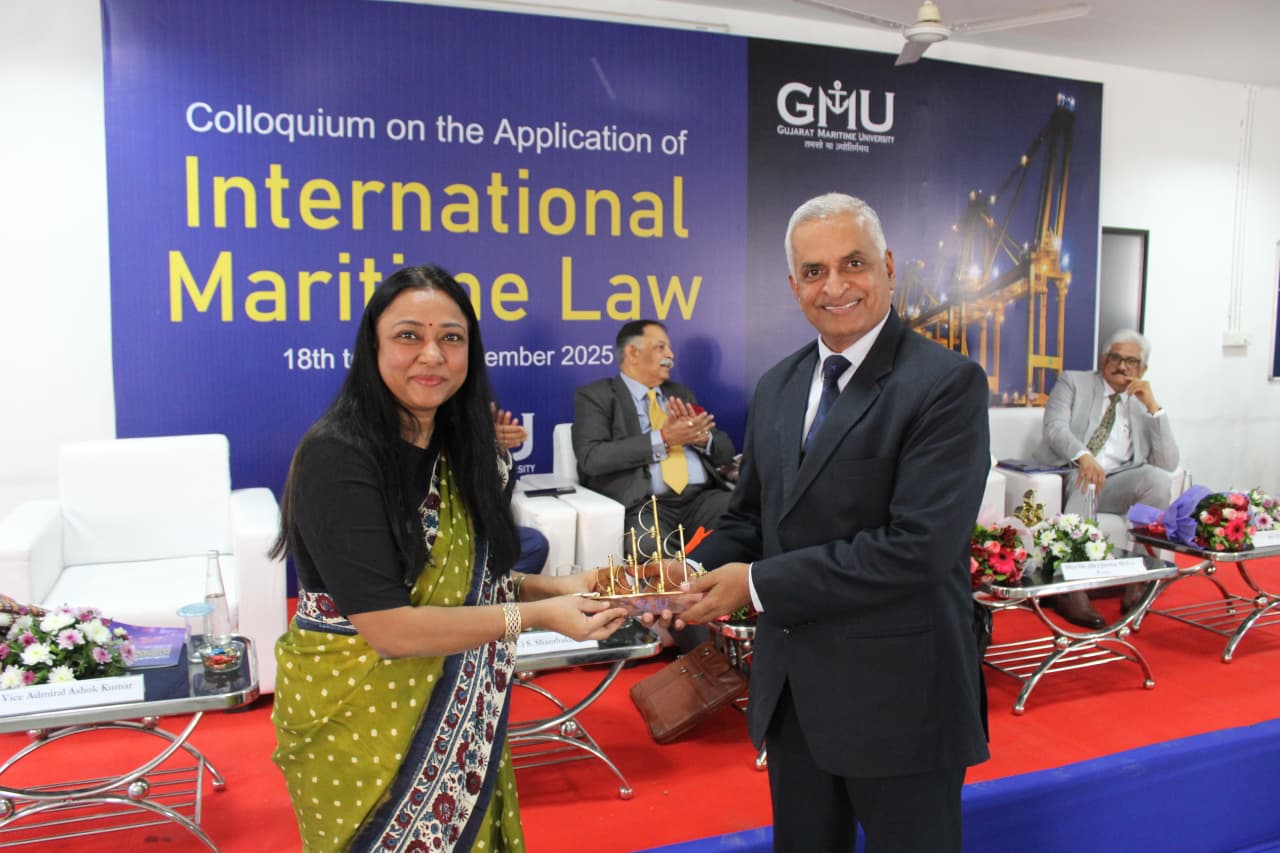
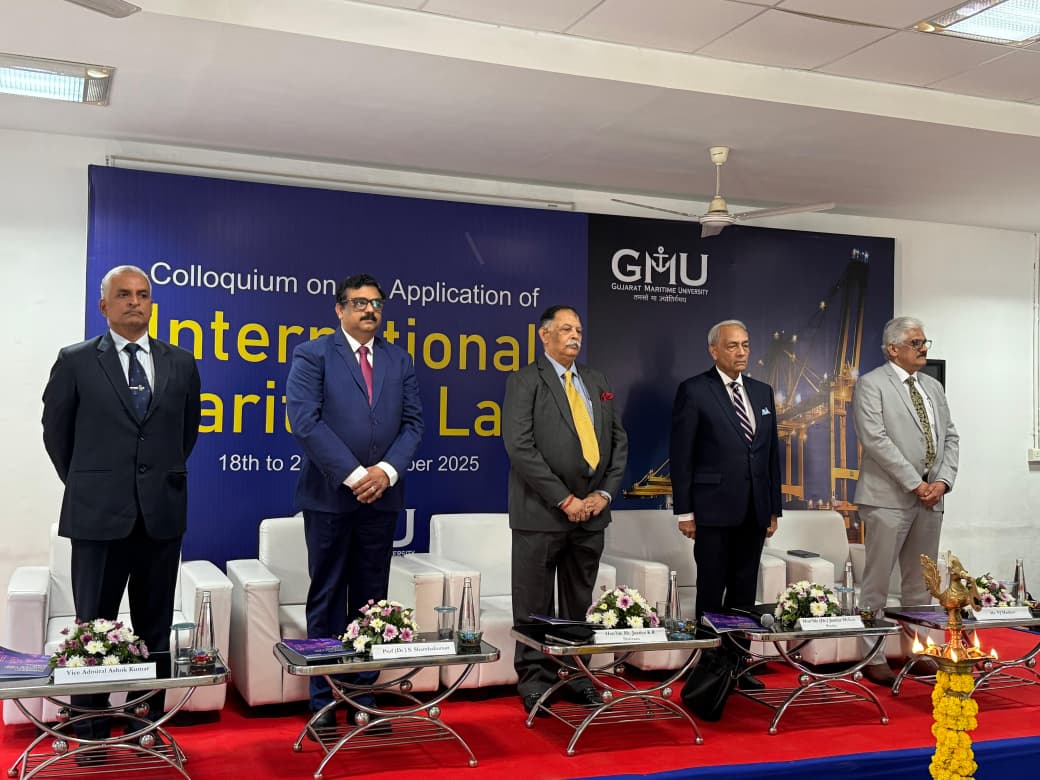
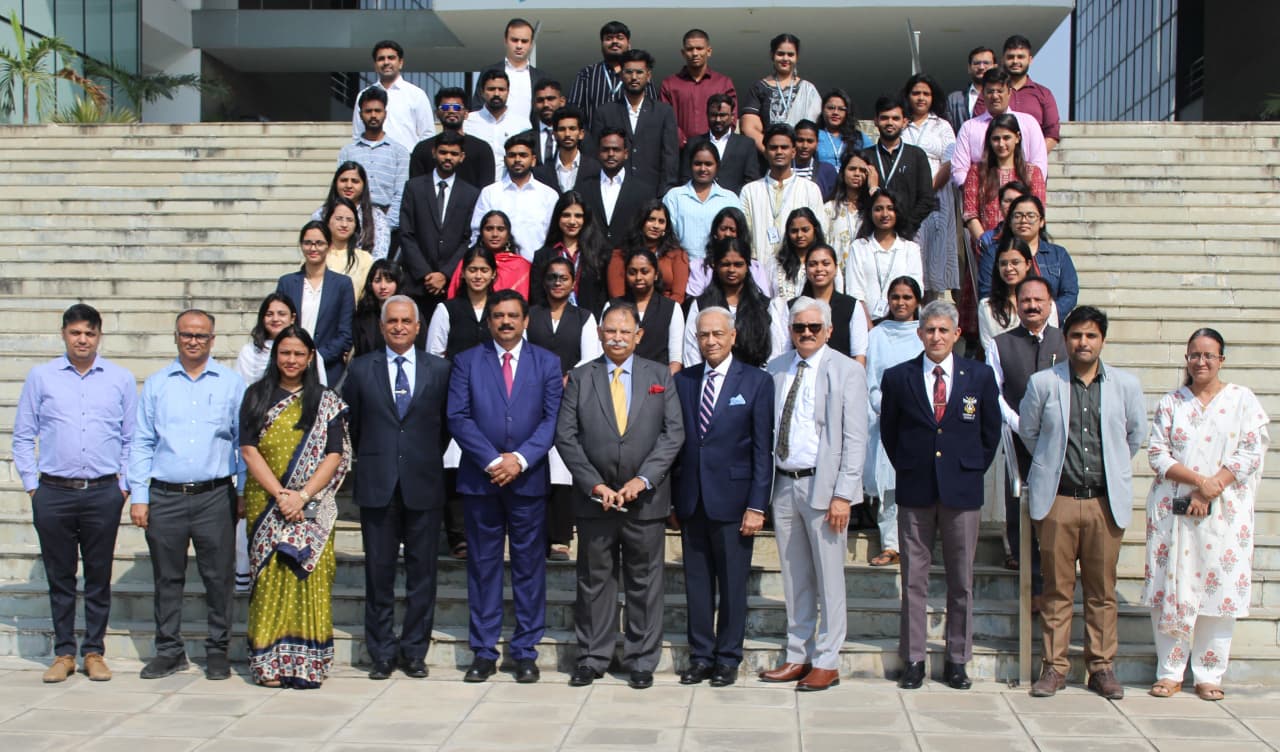
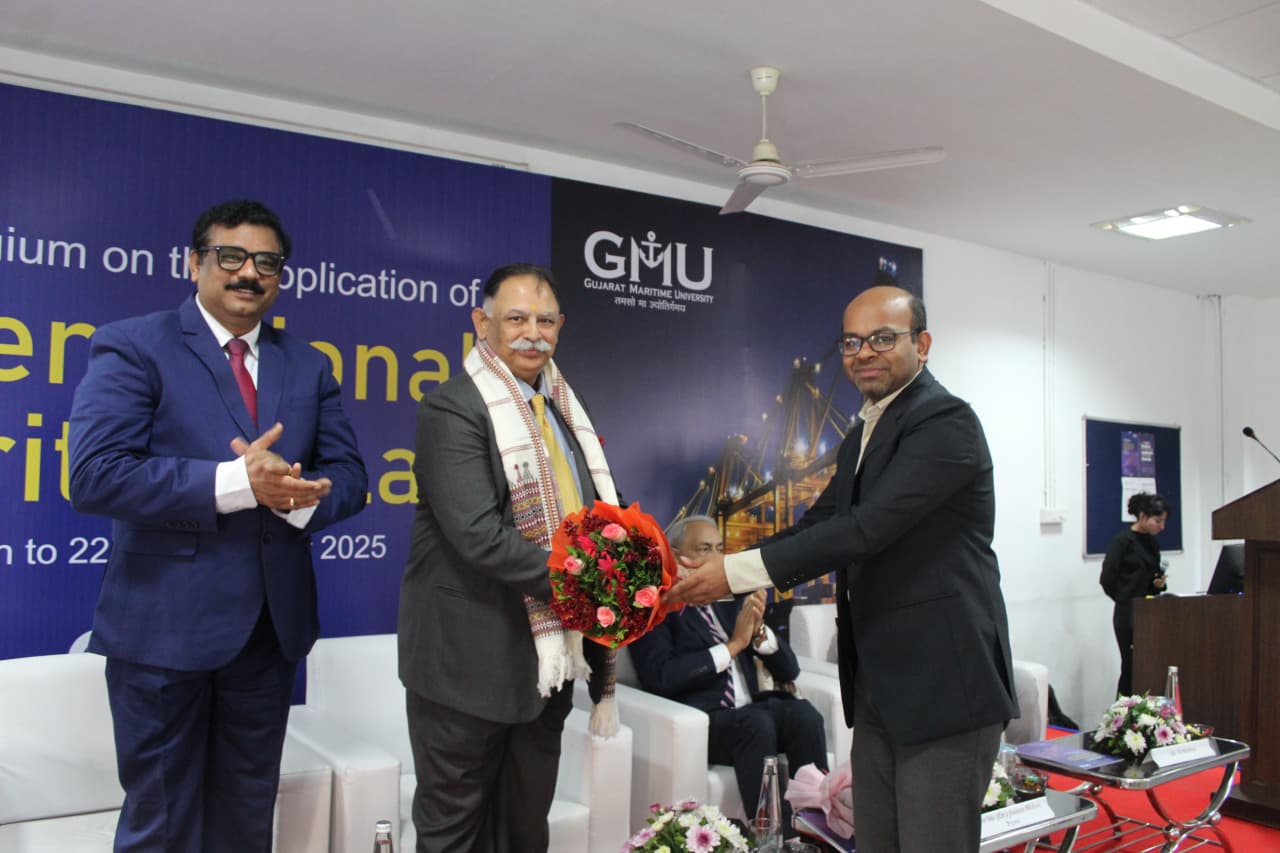
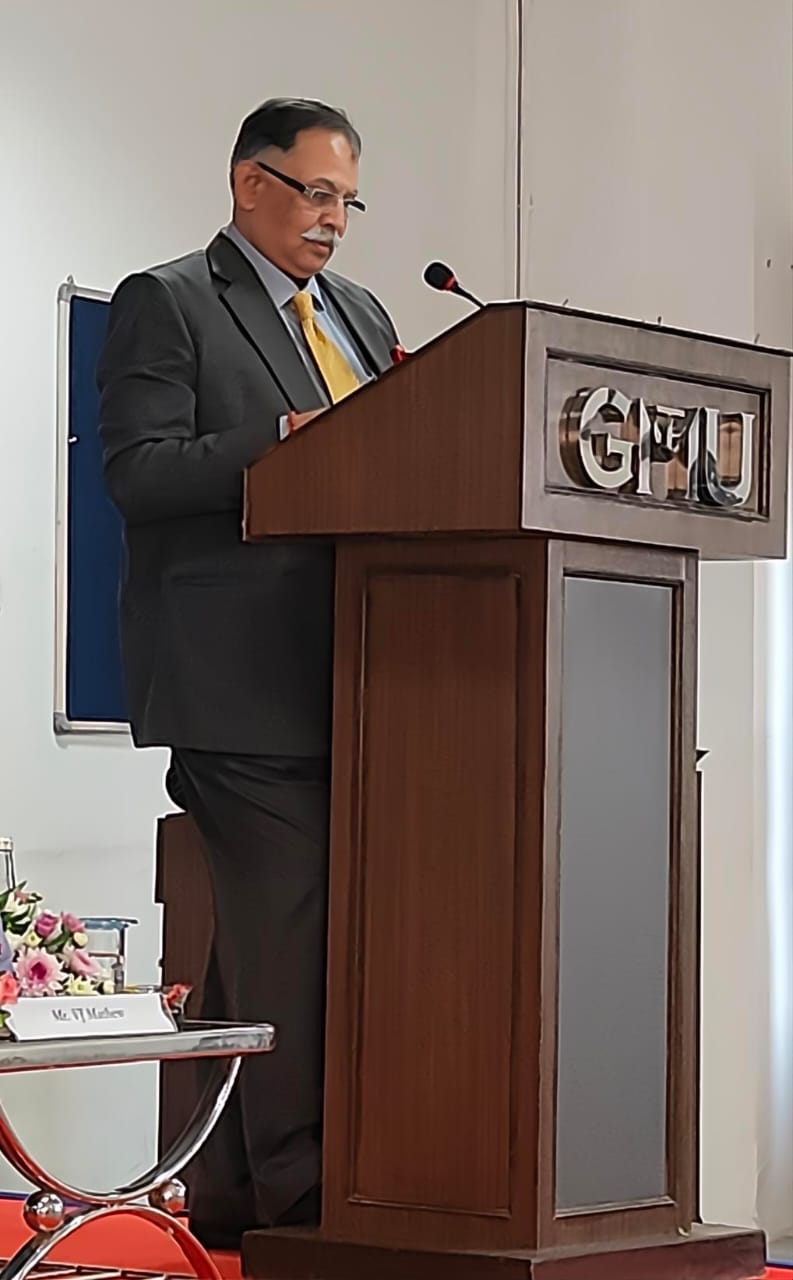
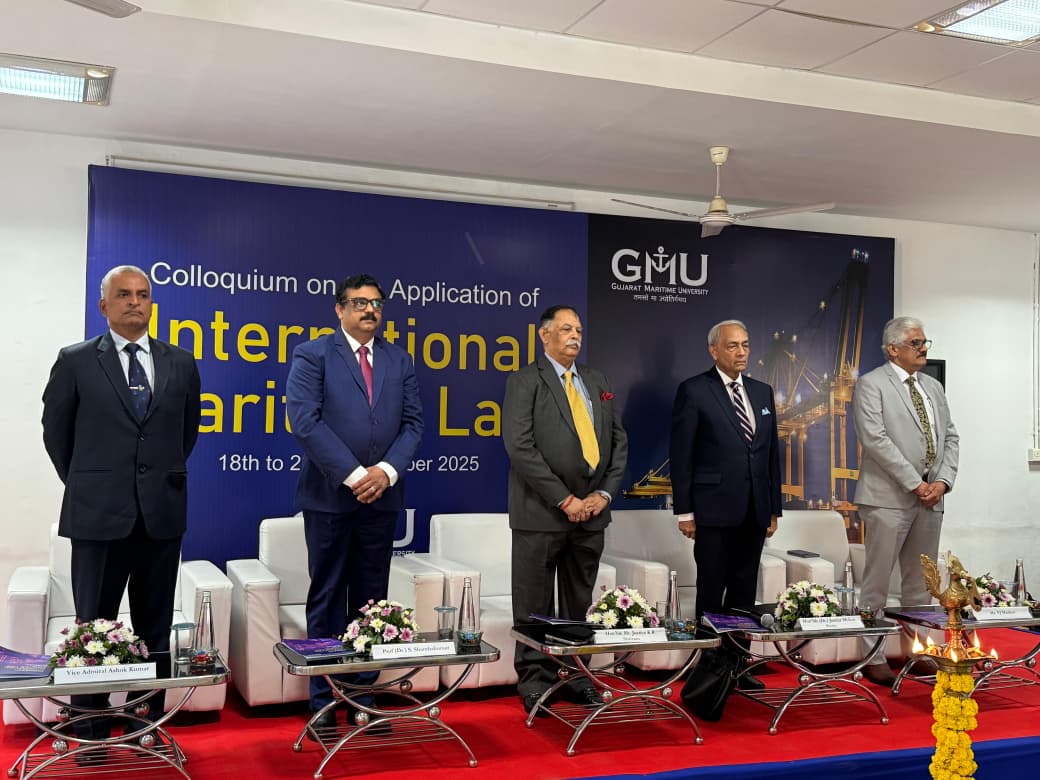
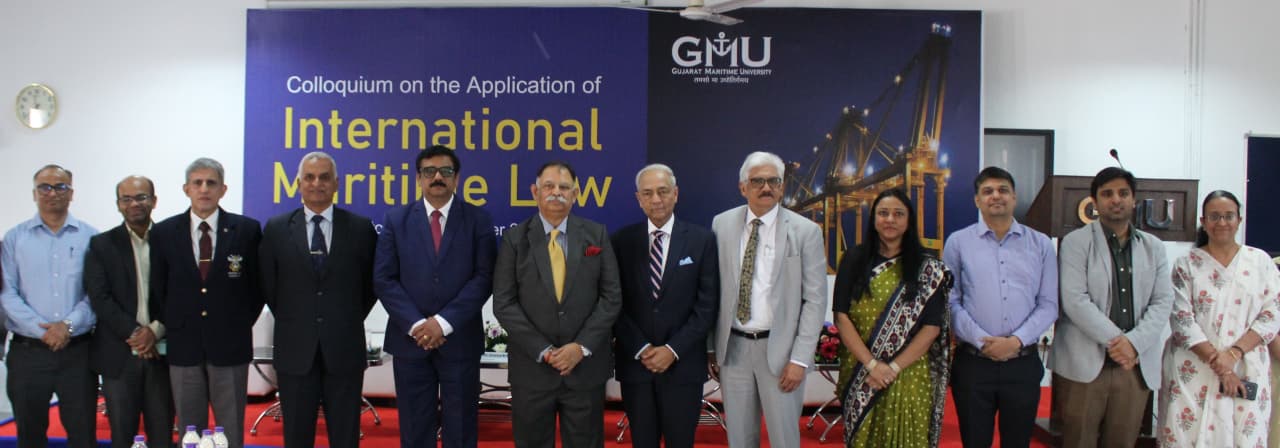
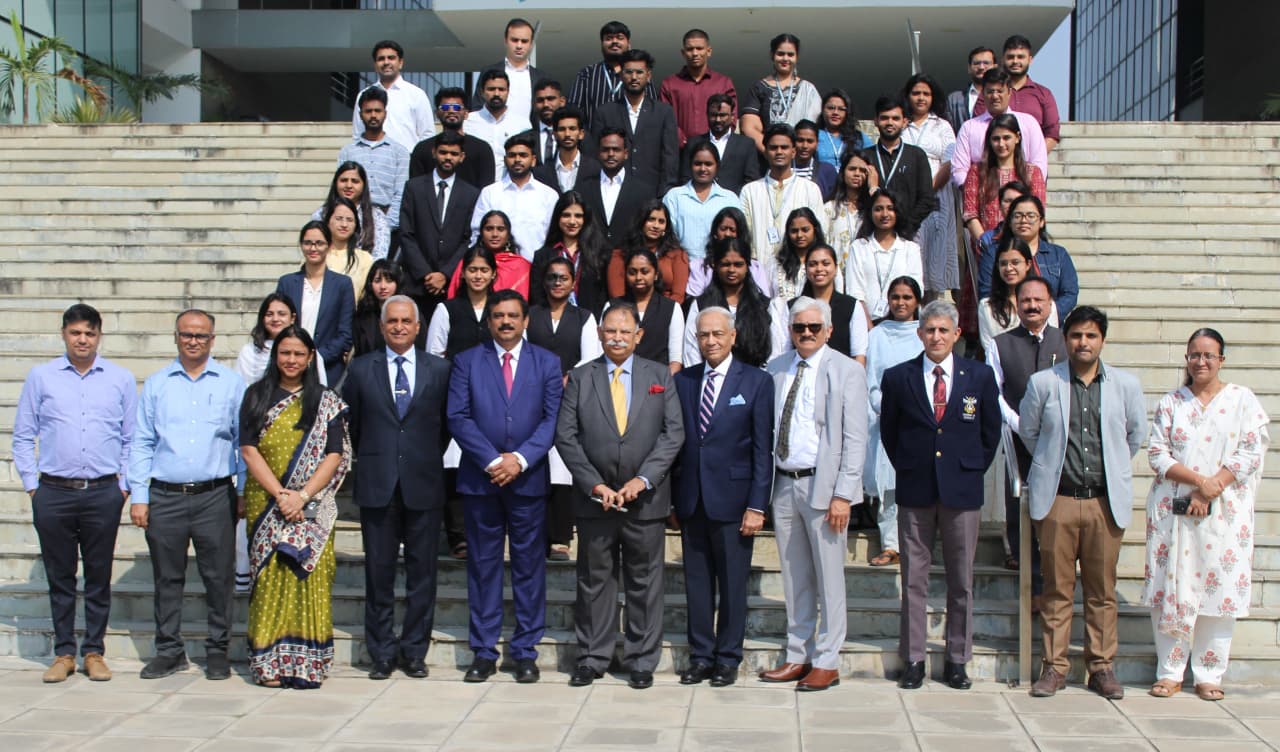
Expanding Maritime Legal Expertise
In his inaugural address, Hon’ble Mr. Justice K.R. Shriram emphasized the specialized nature of maritime law: “Maritime Law is a niche subject. Prior to the Admiralty (Jurisdiction and Settlement of Maritime Claims) Act, 2017, only three High Courts—Bombay, Calcutta, and Madras—had admiralty jurisdiction. The 2017 Act has extended this jurisdiction to High Courts in all coastal states. However, many lawyers and judges remain unfamiliar with the nuances of maritime law. GMU should organize such programmes not only for students but also for bureaucrats, legal professionals and the judiciary.”
Maritime Law: Backbone of Global Trade
Prof. (Dr.) S. Shanthakumar, Provost of GMU, highlighted the critical importance of maritime law: “Maritime law is one of the most critical pillars of the global economic system. With maritime transport moving over 90% of goods traded worldwide, it serves as the backbone of the global economy and provides an essential framework for international trade. Without maritime law, the smooth functioning of global supply chains would be impossible—it provides certainty, predictability, and justice in an industry spanning multiple jurisdictions and involving billions of dollars in transactions daily. For India, with its extensive coastline and ambitious maritime development plans, a strong maritime legal framework is essential for economic growth, trade facilitation, and protecting national interests.”
Aligning with Sagarmala 2.0
Dr. Shanthakumar added, the colloquium aligns with the Government of India’s Sagarmala 2.0 initiative, which aims to transform India into a global maritime hub over the next decade. With an estimated ₹75,000 crore in budgetary support, the initiative focuses on port modernization, shipbuilding and repair, and coastal development. GMU was established to fulfil Hon’ble Prime Minister Shri Narendra Modi’s vision of preparing skilled and competent human resource for this transformative initiative.
Comprehensive Programme
Participants will engage with critical themes including admiralty jurisdiction, the legal status of maritime zones, freedom of the high seas under UNCLOS, ship arrest procedures, and cargo and marine insurance claims. The programme features sessions by key regulatory bodies such as the Directorate General of Shipping, the Indian Coast Guard, and the Indian Register of Shipping. A field visit to the Shipbreaking Yard in Alang will provide practical insights.
The Colloquium aims to bridge academia, policy, and industry by equipping participants with advanced legal, operational, and regulatory knowledge essential for addressing contemporary maritime challenges.

